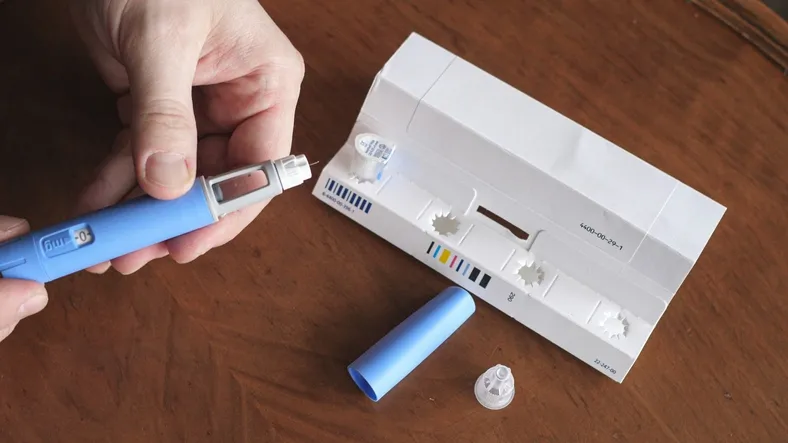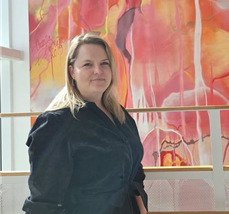Weight loss with GLP-1 analogues in diabetes benefits stroke recovery

Drugs targeting the glucagon-like peptide 1 receptor (GLP-1R) offer several positive effects for individuals with type 2 diabetes, including the lowering of blood glucose and the reduction of body weight and of cardiovascular risk. In a study in mice, researchers at KI SÖS and Södersjukhuset have shown that the specific weight loss properties of these treatments are key to also improve neurological recovery after suffering from stroke.
The scientists hope that these findings, presented in the scientific journal Diabetologia, will open for new strategies to improve the current rehabilitative programs against stroke in the diabetic population.
The study has been conceived by Vladimer Darsalia and Cesare Patrone at Department of Clinical Science and Education, Södersjukhuset, and is the result of a collaborative effort with the Internal Medicine Unit at Södersjukhuset and Boehringer Ingelheim Pharma GmbH & Co in Germany.

“This suggests that better prognosis after a stroke might be achieved if body weight reduction will be given a high priority in people diagnosed with diabetes”, says Ellen Vercalsteren, Postdoc at the Department of Clinical Science and Education, Södersjukhuset, who has conducted important experiments in the study.
“This finding might be very important in clinical perspective and clinical studies are currently ongoing in our research group with Vladimer Darsalia, Maria Neicu and Thomas Nyström to prove these preclinical findings”, adds Cesare Patrone, Docent at the Department of Clinical Science and Education, Södersjukhuset who has directed the study.
The prevalence of diabetes in the world is expected to rise dramatically, reaching 700 million people in 2045. Stroke is one of the major complications in people with diabetes who are not only at higher risk of suffering from stroke but have also diminished and slower recovery in the rehabilitation phase. While diabetic drugs targeting the GLP-1R can partly reduce the risk to be hit by a stroke, no study has investigated whether the metabolic properties of these treatments, administered through a preventive strategy, i.e. before stroke, can also result in a better neurological recovery after stroke.

"This study demonstrates that GLP-1R agonists are strongly efficacious in improving neurological recovery after stroke. These effects occur via weight loss, implicating that also other strategies and pharmacological treatments targeting the body weight should be equally effective", says Cesare Patrone
Funders of the study were The Swedish Research Council, Diabetesfonden, STROKE-Riksförbundet, ALF, Hjärnfonden, Frimurarestiftelse, Ulla Hamberg Angeby och Lennart Angebys Stiftelse and the Swedish Heart-Lung foundation.
Publication
Pre-stroke weight loss by glucagon-like peptide 1 receptor and neuropeptide Y receptor Y2 activation improves post-stroke functional recovery in male diabetic mouse models. Vercalsteren, E., Karampatsi, D., Neicu, M. et al. Diabetologia (2025).
